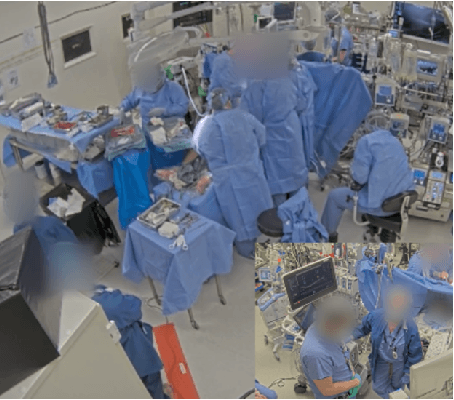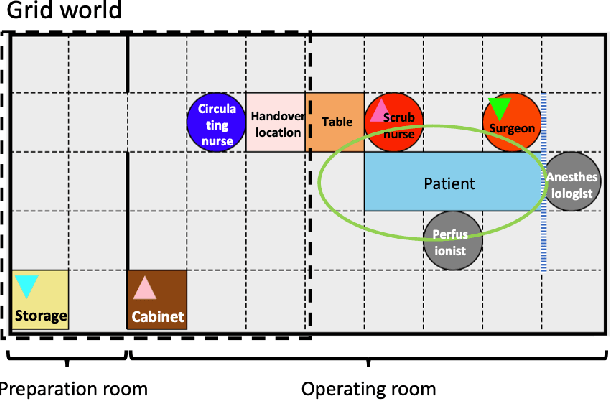Marco A. Zenati
Socratic: Enhancing Human Teamwork via AI-enabled Coaching
Feb 24, 2025Abstract:Coaches are vital for effective collaboration, but cost and resource constraints often limit their availability during real-world tasks. This limitation poses serious challenges in life-critical domains that rely on effective teamwork, such as healthcare and disaster response. To address this gap, we propose and realize an innovative application of AI: task-time team coaching. Specifically, we introduce Socratic, a novel AI system that complements human coaches by providing real-time guidance during task execution. Socratic monitors team behavior, detects misalignments in team members' shared understanding, and delivers automated interventions to improve team performance. We validated Socratic through two human subject experiments involving dyadic collaboration. The results demonstrate that the system significantly enhances team performance with minimal interventions. Participants also perceived Socratic as helpful and trustworthy, supporting its potential for adoption. Our findings also suggest promising directions both for AI research and its practical applications to enhance human teamwork.
Towards an AI Coach to Infer Team Mental Model Alignment in Healthcare
Feb 17, 2021

Abstract:Shared mental models are critical to team success; however, in practice, team members may have misaligned models due to a variety of factors. In safety-critical domains (e.g., aviation, healthcare), lack of shared mental models can lead to preventable errors and harm. Towards the goal of mitigating such preventable errors, here, we present a Bayesian approach to infer misalignment in team members' mental models during complex healthcare task execution. As an exemplary application, we demonstrate our approach using two simulated team-based scenarios, derived from actual teamwork in cardiac surgery. In these simulated experiments, our approach inferred model misalignment with over 75% recall, thereby providing a building block for enabling computer-assisted interventions to augment human cognition in the operating room and improve teamwork.
 Add to Chrome
Add to Chrome Add to Firefox
Add to Firefox Add to Edge
Add to Edge